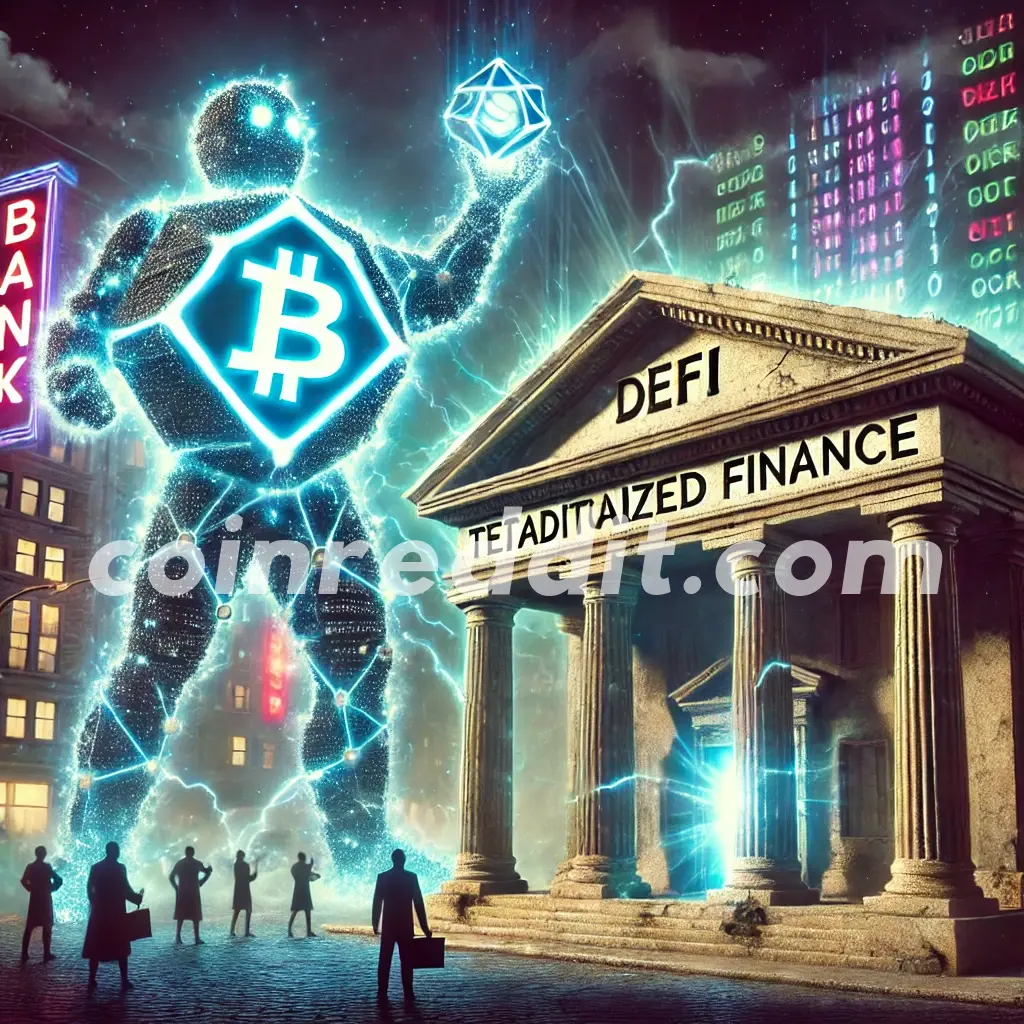
Decentralized Finance Meaning

Decentralized Finance, or DeFi, is a revolutionary movement in the world of finance that eliminates the need for banks and traditional financial institutions. Instead, it uses blockchain technology to provide financial services like lending, borrowing, trading, and earning interest—without requiring intermediaries. But what exactly does that mean, and why is DeFi so important? Let’s break it down in simple terms.
Understanding Decentralized Finance (DeFi)
DeFi refers to financial applications built on blockchain networks that operate without a central authority. Unlike traditional banking, where banks control your money, DeFi platforms allow you to manage your own funds directly through decentralized applications (DApps) and smart contracts.
With DeFi, you don’t need permission from a bank to access financial services. Anyone with an internet connection and a crypto wallet can participate. This system provides transparency, security, and greater financial inclusivity.
Key Features of DeFi
Permissionless Access – Anyone can use DeFi platforms without needing approval from a bank or financial institution.
Transparency – Transactions are recorded on a public blockchain, making them fully auditable.
Smart Contracts – These self-executing contracts run on blockchain networks, ensuring secure and automated transactions.
Lower Costs – Since there are no middlemen, transaction fees are often lower compared to traditional finance.
Passive Income Opportunities – Users can earn interest by staking, yield farming, and providing liquidity.
Popular DeFi Applications
DeFi is growing rapidly, and several platforms have gained popularity for their innovative financial solutions:
Uniswap & PancakeSwap – Decentralized exchanges (DEXs) that allow users to trade cryptocurrencies without an intermediary.
Aave & Compound – Lending platforms where users can borrow and lend crypto assets.
MakerDAO – A platform that issues DAI, a decentralized stablecoin backed by cryptocurrency collateral.
Curve Finance – A DeFi protocol focused on efficient stablecoin trading.
Why is DeFi Important?
Traditional financial systems often exclude millions of people who lack access to banks. DeFi removes these barriers, providing financial freedom to anyone, regardless of location. It also reduces reliance on intermediaries, lowering costs and increasing efficiency.
Risks and Challenges in DeFi
While DeFi offers many benefits, it’s not without risks:
Smart Contract Bugs – Errors in coding can lead to vulnerabilities.
Scams & Rug Pulls – Some projects may turn out to be fraudulent.
Market Volatility – Crypto assets can be highly volatile.
Regulatory Uncertainty – Governments are still figuring out how to regulate DeFi.
Decentralized Finance (DeFi) is changing the way we interact with money. By removing intermediaries and offering open, transparent, and secure financial services, DeFi is empowering people worldwide. However, it’s important to conduct thorough research before investing in DeFi projects, as the space is still evolving.









Comments